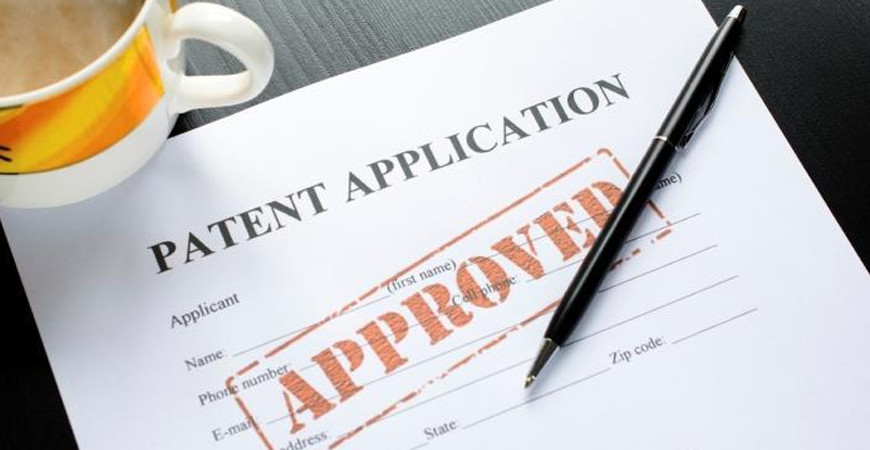Penalties and Secrecy Directions of Patent Registration
If any person infringes the provision of the Patent Acts and Rules, then he is susceptible to be penalized or punished. When a court comes to know that somebody is infringing another’s patent, then the person who is infringing can face several penalties. Generally, the penalty the court may ask the infringer to pay for the damages that the patent owner might have faced, in the form of money to the patent owner. Damages can be paid in several forms as decided by the court, such as

- Payment of money, as decided by either a jury or the court, in order to repay the inventor for wrongfully using his invention. If the patent holder is able to prove that he has lost profits because of the infringement, the patent holder can recover money for the sales he or she would have made, as well as interest on the money owed in the form of royalty payments.
- Payment of interest along with the compensation amount not only on the money owned but also on the owner’s cost of litigation. Mostly, both the parties named in the suit are responsible for their own court expenses. However, in some of the cases, the infringer may have to pay the patent holder’s cost of litigation.
- In certain cases, Patentee may receive damages, as decided by the court, in which a financial award worth three times the amount of the actual financial losses suffered is awarded to the patentee.
As per the Indian Patent act, 1970, penalties are granted according to various sections. They are as follows:
Section 118
This section is related to the penalties where secrecy provisions associated with certain inventions is covered or a patent application is filed abroad without following to the provisions of the Patent Act.
- According to Section 35 and 39 if any person offended against the law he shall be declared as guilty with imprisonment up to 2 years or with fine or with both fine and imprisonment.
- Section 35: An application for a patent is made by him, on which secrecy direction have been imposed, in a foreign country or publishes or communicates the content in the foreign country in regard to an invention associated to defense intent or atomic energy.
- Section 39: If an application for a patent is made by him in a foreign country ahead of expiry of 6 weeks from the date of filing the application for the patent in India, or files an application for a patent in a foreign country first, without taking prior approval from the controller.
Section 119
This section deals with the penalties where false entries are made in the Register etc. If any person makes a false entry in any register kept under the Patents Act or provides any writing evidence as a result of which the entry in the registry results into a false entry; knowing the entry or writing to be false, then he is punishable with an imprisonment for a term that may extend to two years or with fine or with both.
Section 120

This section deals with penalties when there are unauthorized claims to the patent rights. If any person falsely represents that any article sold by him is patented in India or is the subject of an application for a patent in India, he shall be punishable with fine that may extend to rupees one lakh.
Section 121
It deals with penalties when the word ‘patent office’ is used wrongfully. If any person use the word “patent office” at his place of business or on the document issued by him or otherwise or any other word which reasonably leads to the belief that his place of business is, or is officially connected with, the patent office; he shall be punishable with imprisonment in term that may extend to 6 months, or with fine, or with both.
Section 122
This section of the Patent Act deals with the penalties, where a person refuses or fails to provide the asked information. Subject to the provision of Section 100(5), if the patented invention in being used for the purposes of a government undertaking then the Central Government may call for any information which is necessary. Further in accordance with Section 146, anytime during the continuance of the patent, the government may require the patentee or licensee to furnish information, within two months from the date of notification, relating to the use of the patented invention. If any person refuses or fails to furnish information as required under Section 100(5) and section 146 then he shall be punishable with a fine, which may go up to Rs. 10,00,000. If he furnishes false information knowingly, he shall be punishable with imprisonment that may extent up to 6 months or with fine or with both.
Section 123

This section deals with penalties relating to practicing by non-registered patent agents. Any person practicing as a patent agent without being registered as a patent agent is liable to be punished with a fine of Rs.1,00,000 for the first offense and Rs. 5,00,000 for a subsequent offense.
Section 124
This section deals with the penalties in case of an offense by companies. When an offense is committed by a company, the company as well as every person in charge of, and responsible to the company for the conduct of its business at the time of the commission, of the offense, shall be deemed to be guilty and shall be liable to be proceeded against and punished accordingly. However, if such person proves that the offenses was committed without his knowledge or that he exercised all due diligence to prevent the commission of the office, he shall not be liable. Notwithstanding anything contained above, where an offense under this act has been committed by a company and it is proved that the offense has been committed with the consent, connivance or that the commission of the offense is attributable to any neglect on the part of any director, manager, secretary or other office of the company, such director, manager, secretary or other officer shall also be deemed to be guilty of that offense.
Secrecy directions
If it appears to the Controller that the patent application is for invention which is relevant to defense purpose he may give directions to prohibit or restrict the publication of information with respect to the invention or communication of such information. Such directors are called Secrecy Directions. According to Section 11A (1), after the expiry of 18 months from the date of filing the application the patent applications are published. But as per Section 11 A (3) (a), the publication of the application for patent shall not occur till the time secrecy direction are in power. The applications for patent covering inventions associated to defense come under the horizon of secrecy directions. Upon getting such a notice if the Central Government finds that the publication of the invention would not be harmful to the defense of India, then it shall give a notice to the controller to that outcome who shall invalidate the directions and inform the applicant accordingly.
Contravention of the directions imposed
According to Section 39, the applicant cannot file an application for a patent abroad covering the invention which is related to defense and on which secrecy directions have been imposed. He shall make the application abroad only if all the directions as to secrecy have been officially cancelled. If any person offend against any directions as to secrecy given by controller under section 5, then such an application shall be consider to be derelict and patent, if any, granted in India, shall be liable to be cancelled under Section 64.

